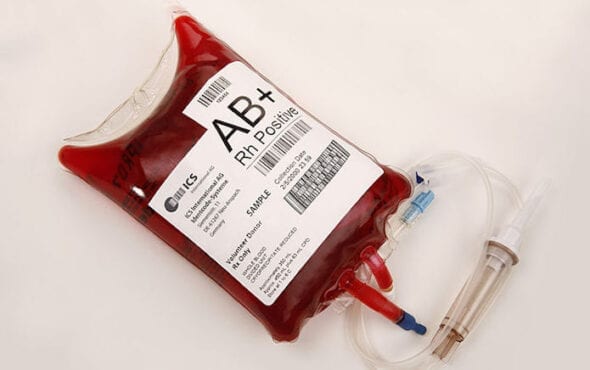
The pilot scheme could result in the FDA changing its policies on blood donation.
Earlier this year, the Food and Drug Administration (FDA) in America eased its restrictions on blood donation by gay and bisexual men, bringing down the deferral period from one year to three months.
The move was taken to allow more blood donors during the coronavirus pandemic and now a new pilot scheme could remove blood restrictions permanently.
The pilot scheme, called Assessing Donor Variability and New Concepts in Eligibility (Advance) is looking for 2,000 men to be recruited from community health centres in San Francisco, Los Angeles, Memphis, Atlanta, Orlando, Miami, Washington, D.C. and Baton Rouge.
It is being fronted by three of the biggest blood donation centres in the United States, Vitalant, OneBlood and the American Red Cross.
The participants need to have had sex with another man within the past three months and be willing to donate blood, with the results potentially changing the questionnaire that the FDA uses to decide whether someone is eligible to donate blood.
A statement on the Advance website reads: “If the scientific evidence supports the use of the different questions, it could mean men who have sex with men who present to donate would be assessed based upon their own individual risk for HIV infection and not according to when their last sexual contact with another man occurred.”
This would mean a swap away from a time-based deferral period to an individual-risk based system.
Speaking to NBC, LGBTQ+ activist Jay Franzone, who went celibate for a year in order to donate blood said: “Italy, Spain and other nations modernized their donor policies years ago, before the U.S. even ended its lifetime ban. Individual, risk-based assessment is safer for recipients of lifesaving blood.”
Jason Cianciotto, senior managing director of institutional development and strategy at New York’s Gay Men’s Health Crisis, expressed some concerns about the study, saying that 2,000 people wasn’t “a representative sample” and that the study avoided places like Chicago and New York City.
A spokesperson for the FDA said they “remain committed to considering alternatives to time-based deferral by generating the scientific evidence that is intended to support an individual risk-assessment-based blood donor questionnaire.”
Although no timeframe has been given for when the study will return its findings, ABC reports that it’s expected results will be given to the FDA in late 2021.

Earlier this month, the United Kingdom announced it would change its archaic rule over deferral periods to an individualised risk-based policy, which has been called the “most forward-thinking policy for gay and bisexual men in the world.”
Donors, regardless of gender or sexuality, will now be allowed to donate unless they’ve had anal sex with a new or more than one person in the past three months.
These changes will be implemented by summer 2021.
Dr Michael Brady, Medical Director at Terrence Higgins Trust, welcomed the change. In a statement, he said: “Our first priority must always be to ensure the safety of the blood supply in the UK.
“We welcome this move to a more individualised risk assessment approach for any potential donor, which both maximises the number of people who can donate while ensuring the blood supply is safe.”
Related: Brazil Supreme Court lifts restrictions on gay and bisexual men donating blood



